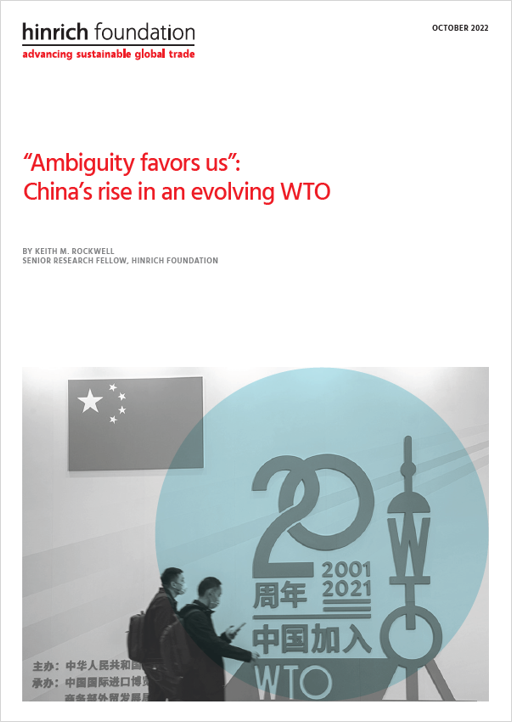Published 18 October 2022
More than 20 years after China’s accession to the WTO, few would argue – inside or outside the country – that the Chinese economy has benefited handsomely from joining the global trading system. But the ambiguities that favored China's accession is now casting a long shadow on the WTO's future.
During China's 15-year-long accession negotiations to the World Trade Organization (WTO), Long Yongtu, the country's chief negotiator, was fond of saying “ambiguity favors us” when asked how China might fit into a system it did not yet belong. Many would argue that the dictum remains true today. The country's circumstances are so unique that traditional definitions fit uneasily. Is China a market economy? Is China a developing country? It is neither and it is both.
Starting from China's accession related reforms, former WTO spokesman Keith Rockwell examines how the controversial aspects of China's economic model now put at risk the multilateral trading system. Rockwell also discusses how China's accession accumulated tensions with trading partners. But the exclusion of China from the multilateral order would also be dangerously destabilizing, Rockwell writes.
© The Hinrich Foundation. See our website Terms and conditions for our copyright and reprint policy. All statements of fact and the views, conclusions and recommendations expressed in this publication are the sole responsibility of the author(s).






